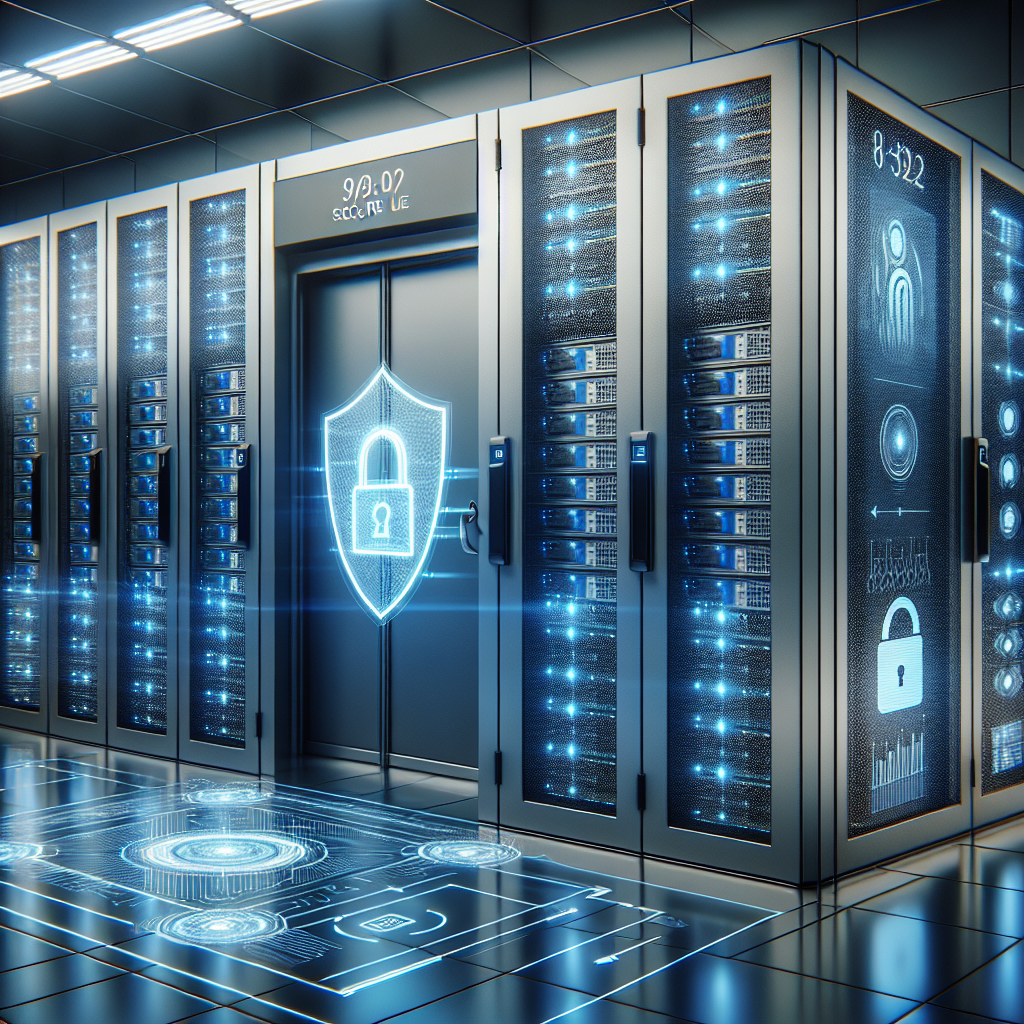Your cart is currently empty!
Ensuring Data Center Security: A Complete Guide to Effective Systems

In today’s digital age, data centers play a crucial role in storing and managing vast amounts of information for organizations of all sizes. With the increasing amount of sensitive data being stored in data centers, ensuring security has become a top priority for businesses. Data breaches can have severe consequences, including financial losses, damage to reputation, and legal repercussions. To prevent these risks, organizations must implement robust security measures to protect their data centers. This complete guide will outline key strategies for ensuring data center security.
Physical Security Measures:
Physical security is the first line of defense for data centers. Here are some essential physical security measures to consider:
1. Access Control: Implement strict access control measures, such as biometric authentication, keycards, and PIN codes, to restrict access to the data center to authorized personnel only.
2. Surveillance Cameras: Install surveillance cameras in critical areas to monitor and record activities in and around the data center.
3. Alarms and Sensors: Deploy alarms and sensors to detect unauthorized access, tampering, or environmental threats, such as fire or flooding.
4. Mantraps: Use mantraps, which are secure vestibules with two interlocking doors, to prevent unauthorized individuals from gaining access to the data center.
Network Security Measures:
Network security is crucial for protecting data as it travels between servers and storage devices. Here are some key network security measures to implement:
1. Firewalls: Install firewalls to monitor and filter incoming and outgoing network traffic to prevent unauthorized access and malicious attacks.
2. Intrusion Detection Systems (IDS) and Intrusion Prevention Systems (IPS): Deploy IDS and IPS to detect and respond to suspicious activities and potential security breaches.
3. Virtual Private Networks (VPNs): Use VPNs to encrypt data transmissions and secure remote access to the data center.
4. Network Segmentation: Segment the network into distinct zones to isolate sensitive data and limit the spread of cyber threats.
Data Encryption:
Data encryption is essential for protecting sensitive information from unauthorized access. Here are some data encryption measures to consider:
1. Encryption at Rest: Encrypt data stored on servers, storage devices, and backups to prevent unauthorized access in case of theft or data breaches.
2. Encryption in Transit: Use encryption protocols, such as SSL/TLS, to secure data transmissions over networks and prevent eavesdropping attacks.
3. Key Management: Implement robust key management practices to securely store and manage encryption keys and ensure their confidentiality.
Regular Security Audits and Testing:
Regular security audits and testing are essential for identifying vulnerabilities and weaknesses in data center security. Here are some best practices for security audits and testing:
1. Penetration Testing: Conduct regular penetration tests to simulate real-world attacks and identify potential security gaps.
2. Vulnerability Scanning: Use automated vulnerability scanning tools to identify and remediate security vulnerabilities in the data center infrastructure.
3. Compliance Audits: Ensure compliance with industry regulations and standards, such as PCI DSS, HIPAA, and GDPR, by conducting regular compliance audits.
Employee Training and Awareness:
Employees are often the weakest link in data center security. Therefore, it is crucial to provide comprehensive training and awareness programs to educate employees on security best practices. Here are some key areas to focus on:
1. Security Policies and Procedures: Communicate data center security policies and procedures to employees and ensure they understand their roles and responsibilities.
2. Phishing Awareness: Train employees to recognize and report phishing attacks, which are a common tactic used by cybercriminals to gain unauthorized access to data.
3. Incident Response: Provide training on incident response procedures to ensure employees know how to respond to security incidents effectively.
In conclusion, data center security is a critical aspect of protecting sensitive information and ensuring business continuity. By implementing robust physical security measures, network security controls, data encryption practices, regular security audits and testing, and employee training programs, organizations can establish a strong security posture for their data centers. By following this complete guide to effective data center security, organizations can mitigate the risks of data breaches and safeguard their valuable information.

Leave a Reply